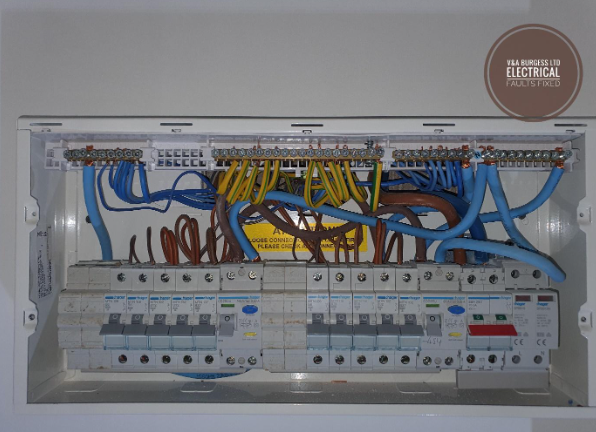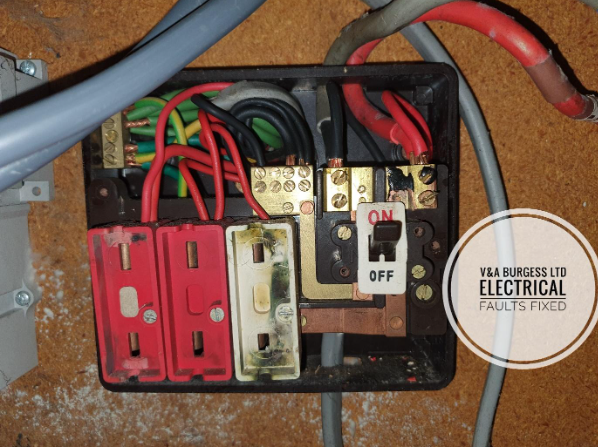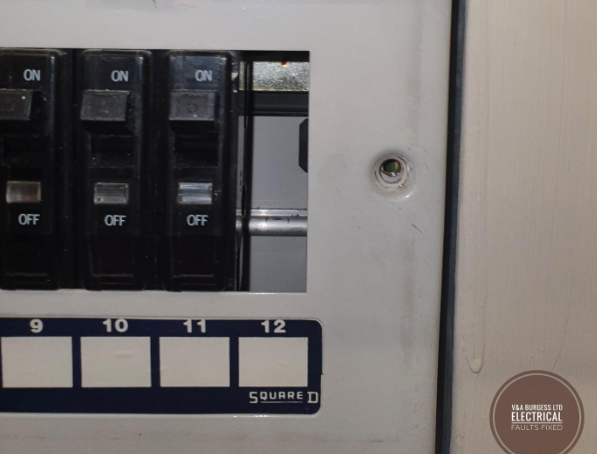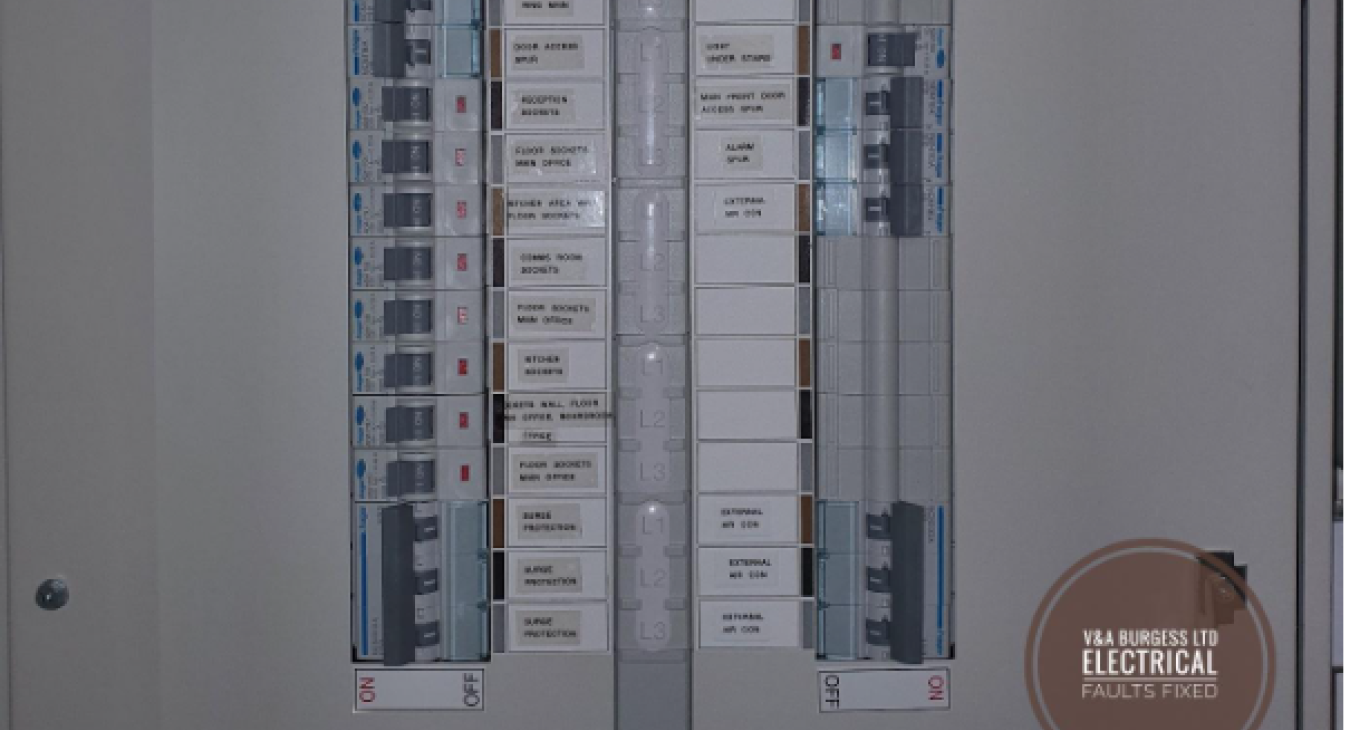When Do Electrical Panels Need Replacing? 9 Signs - Electrical Faults Fixed
The Electrical Panel is the brains, the nerve centre and control system for our electrical wiring systems. It is responsible for many vital functions in the home's electrical system and for keeping us safe from electrical dangers. The electric panel helps to prevent electrical shock, detects electrical issues, protects electrical cabling and aids in the avoidance of electrical fires.
Without this electrical equipment there would be no protection from electrical faults and chaos would ensue.
1) Lifespan of typical Electrical Panels
Many manufacturers will guarantee their electrical panels and switch gear (circuit breakers), GFCIs, Main Switch for several years. Schneider guarantee their equipment for 5 years, British General (UK brand) guarantee their equipment for 10 years and other manufacturers warranties will vary.
This does not mean that electrical panel replacement is necessary after the warranty has expired but may mean that issues will start to occur following the expiration of any guarantees. In reality, many electrical panels will last for 20 years or more before issues start to occur but you should certainly consider replacing the home's electrical panel once it reaches 20 years of age and by 30 years of age, it is likely that the circuit breaker panel WILL need replacing.
Back to top2) Factors that affect the panel lifespan
We assume that if the electrical panel is working and the lights come on in the property then all must be fine? Truthfully, electrical systems will work seemingly normally but can be on the point of failure whilst doing so. There are various factors that will affect the lifespan of an electrical panel and these are:
2.1) Installation Environment
Electrical equipment contains several different metals, moving parts and electrical connections. The best installation environment for this equipment is dry, away from the weather and in a clean location. Where electrical equipment is installed in a damp and dusty basement it will not last as long as where it is installed in a clean and dry location. Damp causes corrosion on metals and this can affect their ability to operate, their electrical conductivity and internal resistances.
2.2) Quality of Original Installation
If the original installing electrician took care installing the electrical components into the panel, left adequate room for wiring and installed the equipment according to the manufacturer’s instructions then it is likely that this panel will last longer than one that was thrown in for the cheapest price possible. The expected life of a professionally installed panel is going to be longer than that of a poor installation job.

(Photo: Modern Consumer unit / Electrical panel well installed)
2.3) Quality of the Equipment
There are electrical panels to suit all budgets and whilst the quality of the equipment has to meet minimum safety standards, those minimum standards can be met as cheaply as possible with manufacturing plants working to the lowest costs. Higher quality equipment will not only meet the minimum standards but may also be constructed from better quality metals, plastics and more rigorous testing and manufacturing processes.
2.4) Number of Electrical Faults
Where electrical faults occur, many homeowners will try to ignore the problem, constantly resetting a trip switch or kicking the can down the road for a few months. Where electrical panels are left to deal with electrical faults time and time again, this will take its toll on the equipment resulting in breakdown and repair costs. Electrical circuits that have a short circuit, insulation fault or other issues will cause a circuit breaker or other electrical panel equipment to operate repeatedly. This will dramatically reduce the lifespan of the equipment.
2.5) Servicing, Maintenance, General Wear and Tear
A professional electrician should inspect the electrical panel every few years to ensure that there are no loose connections, fire hazard, excessive wear, or any other potential hazards. It is a good idea to have your panel checked every 5 to 10 years along with the electrical wiring in the property. Where the wiring is older such as is the case with many older homes, it may be necessary to have the panel and wiring checked more regularly.
Modern appliances can demand more than older electrical panels were designed to give which can sometimes present a serious problem. Outdated electrical panels that have not been regularly serviced and have been subjected to high electrical loads and general wear and tear can fail unexpectedly.
Back to top3) 9 signs that your panel needs replacing
3.1) Electrical Panel smells strange
A burning smell from an electrical panel likely means that the panel has internal damage. This is a bad sign and is likely to be dangerous. An old panel is more susceptible to electrical burning as connections will likely be corroded, metals tarnished and terminations loose.

(Photo: Old fuse Box with signs of fuses blowing regularly)
3.2) Buzzing sounds from panel
Electrical buzzing in a Fuse box or electrical panel could mean that various components are about to fail. The buzzing sound is often electrical arcing and is common in lights and switches. High temperatures are created when arcing occurs and can lead to electrical fires, as such, if you hear this kind of noise then it’s best to turn the electrical panel off immediately and contact an electrician.
3.3) Flickering Lights
Where you have flickering lights there could be a number of reasons. One of the most common reasons if that old electrical panels are beginning to fail and will require replacing. The lifespan of electrical panels can vary and the only way to ascertain the current condition of your electrical panel is to have a certified electrician to come and check it out for you.
3.4) Switches Keep Tripping
Outdated circuit breakers can become weak with age and begin to trip before they really should. The average lifespan of a circuit breaker will vary between manufacturers and can be affected by numerous factors as discussed above with the electrical panel lifespan section. Our modern electrical needs can put great stress on older panels with aging equipment so it’s not uncommon for switches to trip intermittently.
3.5) Fuses blow
Where fuses blow regularly, it may be a sign of an older panel failing and possible electrical faults in your wiring. Fuses can blow for several reasons including when light bulbs decide to blow but if you still have actual fuses in your home's electrical panel then it is definitely time for a more modern electrical panel.
3.6) Visible Damage to Panel
Visible damage to an electrical panel is a safety hazard. Physical damage to a panel can lead to live parts exposed to the touch, discolouration on the outward sides of the panel may indicate panel overheating or internal damage by melting, cracks and missing components will often require that breaker panels are replaced in order to rectify.

(Photo: Screw Missing, Hole in front of electrical panel)
3.7) New Home Appliances
Multiple new home appliances and old electrical panels do not mix. A new 200-amp panel is suitable for new appliances, multiple electrical circuits, and modern living. Older panels were often 100 amp meaning that supply was limited and there was often not an adequate power supply for our needs.
3.8) The Panel looks Old
If the panel looks very old then a licensed electrician should be called to check it out. Once a panel reaches 25-40 years old, parts will be beginning to fail and will have reached the end of their serviceable and useful life.
3.9) Intermittent Power Outages
Intermittent power outages can indicate serious problems in the electrical system. The electrical box can be one of the causes for intermittent power outages especially when combined with a fishy odor.
Back to top4) Benefits of a Modern Electrical Panel
There are numerous benefits to a modern electrical pane, not only is the risk of electrical fire greatly reduced but general electrical safety will be improved as a result. An electrical panel upgrade should be considered in all cases where the existing electrical panel is over 20 years old. Any warranty from the manufacturer will likely have long expired and internal issues will start occurring.
Back to top5) What’s involved in the installation of a New Electrical Panel?
Before a new panel can be installed, an electrician may want to check all the various circuits in the property to ensure that they are in good working order before the new installation takes place. New electrical panels can pick up electrical faults that older panels will miss and as such, it’s a good idea to check that a rewire or major repairs are not needed before paying for a new panel installation.
A qualified electrician can conduct an electrical survey to check if there are any necessary repairs to carry out before the new panel is installed.
Summary
Electrical panels do not last forever and older panels can harbour hidden dangers. Where there are visible signs of damage, discoloration, cracks, or openings exposing live parts, repairs should be carried out immediately.
Switches, and panel equipment also have a lifespan that should not be exceeded. Modern electrical panels contain many safety features not available on older equipment and represent excellent value for money when considering installation cost and expected lifespan in comparison to other home repairs and improvements.
Read more articles
- Log in to post comments


